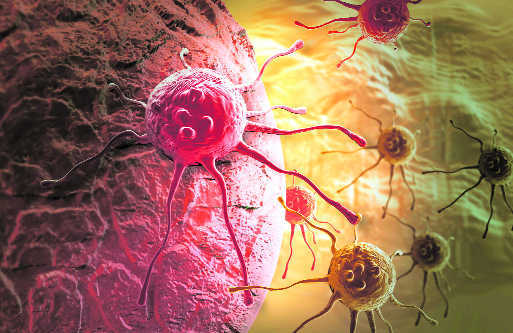
London, 14 February
Researchers have shown that inhibition of the protein – EZH2 – can reduce the growth of cancer cells in multiple blood cancer myeloma – a type of blood cancer where immune cells grow in an uncontrolled manner in the bone marrow.
According to the researchers, the disease is very difficult to treat and is still considered unstable, so it is imperative to identify new therapeutic targets in the cancer cells.
The study of a mouse model, published in the journal Cell Death & Disease, reveals that the decrease is caused by changes in the metabolism of cancer cells and these changes can be used as indicators to discriminate determine whether a patient would respond to treatment with EZH2 inhibition.
“We treated mice with a cancerous type that responds to multiple human myeloma with EZH2-inhibiting material and found several signs that the treated mice had slower cancer growth than the untreated mice. treatment. This provided further evidence of the potential of EZH2 as a target for clinical intervention, ”said researcher Helena Jernberg Wiklund from Uppsala University in Sweden.
The results from the mouse model prompted the researchers to further investigate what makes the cells sensitive to EZH2 inhibition. Multiple human myeloma cells are more heterogeneous than mouse model cells and found that some types of cultured human myeloma cells were sensitive but others resisted.
To further investigate this phenomenon, the researchers used global analysis of cell metabolites in conjunction with analysis of gene activity. Sensitivity was found to be related to changes in specific metabolic pathways in the cells.
“In cells that were sensitive to EZH2 inhibition, the methionine cycle pathways were altered, an effect that we did not detect in insensitive cells. This change was caused by a decrease in genes associated with methionine cycling, ”said Wiklund.
The changes in metabolite abundance in the methionine cycle pathways could be used as indicators to discriminate whether a patient responds to EZH2 inhibition, which is critical for potential clinical use in treatment. this, the team said. – IANS